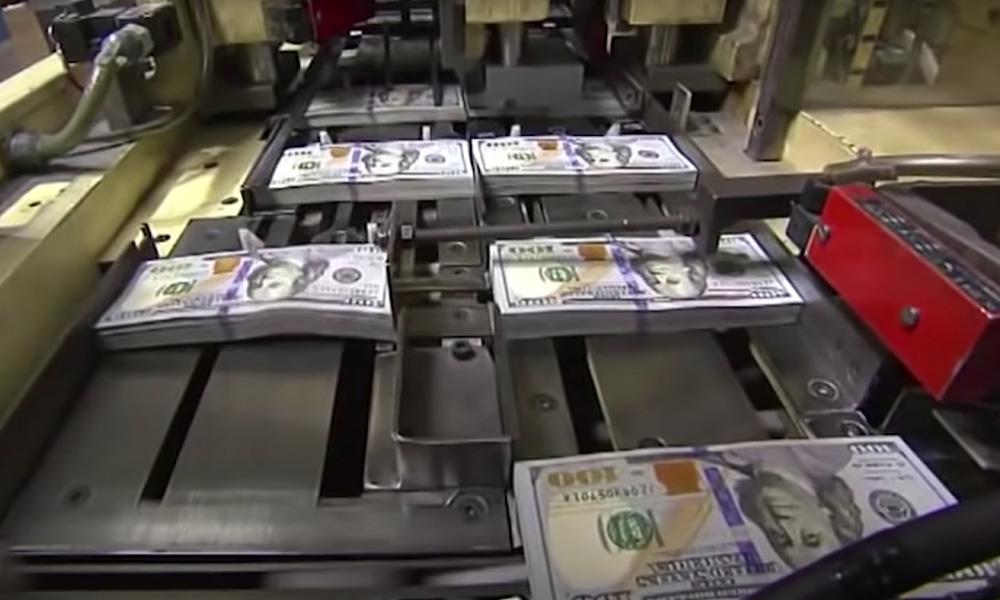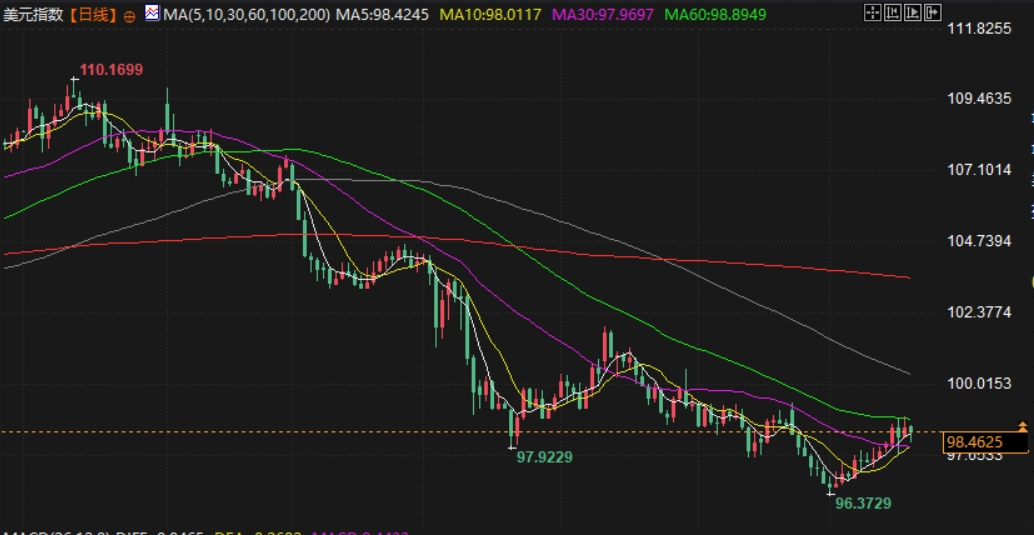The dollar closed higher on a weekly basis, but the rally slowed down. The risk of Powell being fired increased, and the focus is on the ECB's interest rate decision next week.
2025-07-19 06:35:08

Data on Tuesday showed the consumer price index rose in June, but the gain was seen as modest, while a report on producer price inflation on Wednesday showed price gains held steady in June.
Powell said he expects inflation to rise this summer because of Trump's tariffs. His comments pushed back expectations for when the Fed might cut interest rates. But the labor market showed signs of weakness even as overall job growth and the unemployment rate remained relatively stable.
"We're waiting for tariffs to actually land, not just as a negotiating tactic, and we're also waiting for the true performance of the labor market," said Lou Brien, a strategist at RW Trading in Chicago. "Layoffs are below pre-pandemic levels, but hiring is terrible. If there's a sudden wave of layoffs, the unemployment rate could rise sharply very quickly."
Fed Governor Waller said on Friday he was leaning toward a rate cut at the July meeting because he thought the impact of tariffs on inflation was likely to be limited. Waller added that underlying data "do not suggest an extremely healthy private sector labor market" and that the Fed should "preemptively" respond to a possible slowdown in hiring.
Powell faces near-daily criticism from Trump over the Fed’s reluctance to cut interest rates. The dollar fell on Wednesday on reports that Trump planned to fire Powell, whose term expires in May next year, but recovered after Trump denied the report.
Trump says he discussed "the concept of firing (Fed Chairman Powell)" with Republicans. Denies drafting letter to fire Fed Chairman Powell. Trump says only interested in "low interest rate guy" as Fed Chairman. (Comments on firing Fed Chairman Powell) Very unlikely. Expresses concern about (Fed) reform. Changes will happen in the next eight months; someone who performs well will be appointed.
Chicago Fed President Goolsbee said he was "a little wary" of signs in June CPI data that tariffs were pushing up goods inflation, but still believed the U.S. economy was in good shape and the Fed's policy rate could fall "quite a bit" over the next 12 months.
Fed funds rate futures traders are pricing in a 46 basis point rate cut by the end of the year, meaning two cuts of 25 basis points each are most likely, with the first in September. The dollar index gained 0.61% on a weekly basis to close at 98.462.
The euro was up 0.23% on the week at 1.1621, paring gains after the Financial Times reported that Trump was pushing for minimum tariffs of 15% to 20% in any deal with the European Union.
Deutsche Bank economists said in a report that the recent appreciation of the euro could lead to a short-term decline in inflation. They said the inflation transmission effect of a strong currency depends on the reason for its appreciation. If the currency's strength is driven by external rather than internal factors, then inflation may be lower.
Deutsche Bank estimates that the euro's current strength is due to external factors. Internal factors such as stronger economic growth may offset the impact of lower imported inflation due to the rising exchange rate. Nevertheless, the ECB may remain cautious about drastically cutting interest rates. This is because the eurozone's planned fiscal stimulus measures may push up inflation in 2026, they said.
Economists expect the ECB to keep interest rates unchanged at its policy meeting next week but could cut rates again in September when the economic impact of tariffs and the outcome of U.S.-EU trade talks become clearer.
Paul Hollingsworth, head of developed market economics at BNP Paribas, said: "If the United States raises tariffs on Europe on August 1, I expect the EU to take some retaliatory measures, so there may be a risk of a back-and-forth and gradual escalation, but at present, this still seems to be a tail risk rather than a main scenario. The possibility of reaching an agreement before August 1 still exists."
Money markets still see about a 90 percent chance of a 25 basis point rate cut by the ECB by December and about a 40 percent chance of a September cut.
Sterling was flat at $1.3411, down 0.64% for the week. British inflation data released on Wednesday was higher than expected, and on Thursday there was news of slowing wage growth. Friday's data was relatively quiet.
Analysts at Goldman Sachs, Citigroup and Bank of America had expected the BoE to cut rates in both August and September, but the data led them to remove their forecasts for a September cut in reports published on Friday.
The labor market has been softening, wage growth is slowing and economic growth data remain weak, Bank of America said. This could give the central bank reason to cut rates further, and we still expect the next rate cut to be in August, but stronger-than-expected inflation and a sharp upward revision to recent wage falls suggest the data is not yet weak enough for the Bank of England to accelerate its pace of rate cuts. "The market is close to believing in an August rate cut and is pricing in one more rate cut before the end of the year. However, while the prospect of fewer BoE rate cuts would normally support the pound, the impact of higher borrowing costs on the UK's public finances has limited gains.
"The outlook for the UK appears to be much weaker than for other major economies and we expect these headwinds to weigh on the pound in the coming weeks," said currency analysts at Monex Europe.
The yen edged lower against the dollar ahead of Japan's upper house election on Sunday, in which the ruling party appears vulnerable.
USD/JPY was up 0.96% for the week as opinion polls showed Japan's ruling coalition was at risk of losing its majority, which would stoke domestic policy uncertainty and complicate tariff talks with the United States.
U.S. Treasury Secretary Jeff Besant said the two countries could reach a "good deal" on tariffs after meeting with Japanese Prime Minister Shigeru Ishiba in Tokyo.
The Bank of Japan will warn about uncertainty over the impact of U.S. tariffs in its quarterly report this month, but is likely to be less pessimistic about the near-term hit to the economy than it was three months ago, three sources familiar with the central bank’s thinking said.
With the Bank of Japan expected to keep interest rates unchanged at 0.5 percent at its July 30-31 meeting, markets are looking for clues on the timing of the next rate hike as they focus on how the central bank describes the outlook for economic growth and prices in its quarterly report to be released after the meeting.
In its upcoming report, the BOJ is likely to maintain its warning that uncertainty over the economic impact of U.S. tariffs remains high, the sources said, asking not to be identified because the discussions are private.
In its last report, the Bank of Japan forecast economic growth of 0.5% in fiscal 2025, 0.7% in 2026 and 1.0% in 2027.
The BOJ is likely to maintain its view that inflation will consistently hit its 2% target in the second half of its three-year forecast period ending fiscal 2027, the sources said.
Some BOJ policymakers, such as hawkish BOJ board member Naoki Tamura, have warned that cost-push price pressures could have second-round effects that push up underlying inflation, necessitating a resumption of rate hikes.
The Bank of Japan will consider raising its inflation forecast for this fiscal year to reflect continued increases in rice and broader food costs, sources have said.
In the foreign exchange market, the focus next week will be on trade negotiations among countries, especially between Japan and the European Union. Next week, Federal Reserve Chairman Powell will deliver a welcome speech at a regulatory meeting, the European Central Bank will announce its interest rate decision, Bank of England Governor Bailey, and external members of the Bank of England's Financial Policy Committee Kroszner and Wilkins will speak to the House of Commons Finance Committee of the British Parliament on the Bank of England's semi-annual financial stability report, and the Reserve Bank of Australia will release meeting minutes.

- Risk Warning and Disclaimer
- The market involves risk, and trading may not be suitable for all investors. This article is for reference only and does not constitute personal investment advice, nor does it take into account certain users’ specific investment objectives, financial situation, or other needs. Any investment decisions made based on this information are at your own risk.










